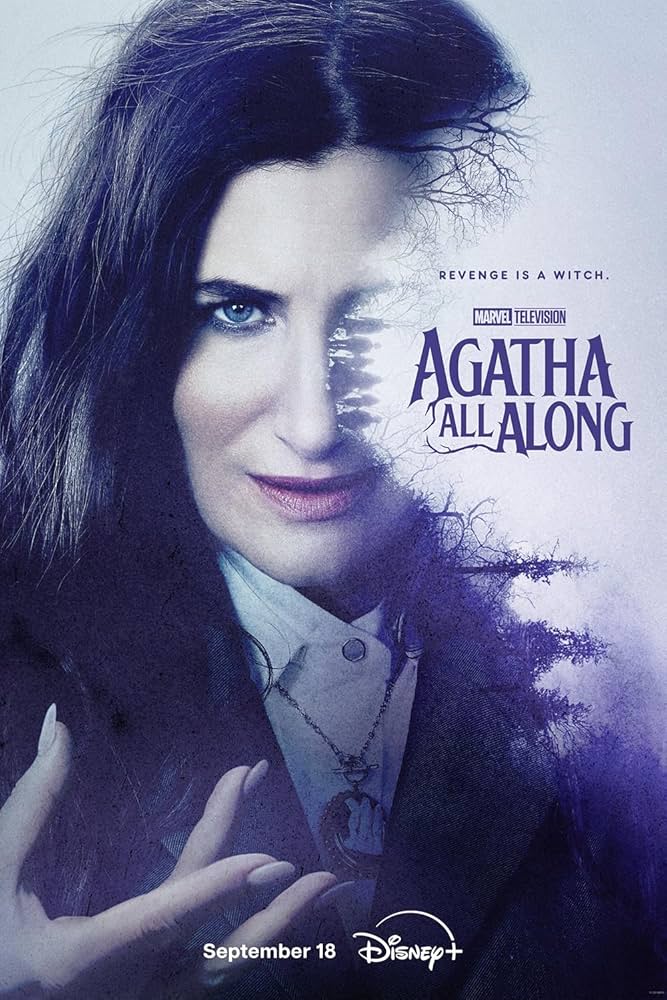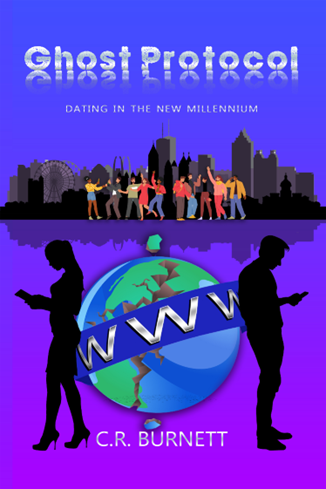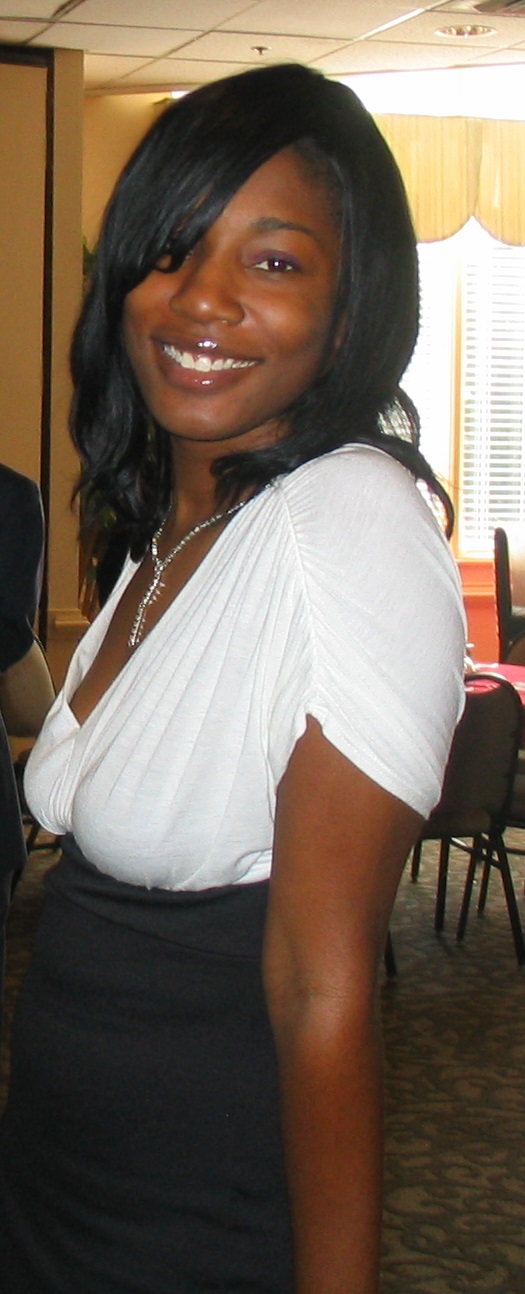There are times that I find myself confused as an elder god millennial, and guys, I have to admit that I am highly confused by the bizarre film that I saw a couple of weekends ago in theaters.
By now, Red One has a reputation, and it should. It is one of the most baffling misfires that I’ve seen personally in a long time, and frankly, we haven’t seen a misfire on this scale since about Madame Web. Now, granted, we have still had some movies fail that didn’t expect to fail after the actors/writers strike of last year, but Red One is a slam dunk that somehow was the most pathetically lazy showing of The Rock’s career, which is saying something considering– *points to his last at least 7 films* So I decided this movie would be a great subject for a highly confused Cautionary Tale segment. I mean, at least this time I’m not angry? Yay?
Just in case you haven’t heard, Red One is a Christmas action-adventure film (or it’s supposed to be one) that stars The Rock (and no, I will NEVER call him Dwayne Johnson even though I know this man wants me to call him Dwayne Johnson; I’m a millennial and we hate change, so I’m gonna call him The Rock until I die.), Chris Evans, Lucy Liu, and JK Simmons along with a couple familiar faces like Nick Kroll and that big-headed girl from the Sabrina Netflix remake (whom I personally know as the snotty little BD Merrill from Feud: Bette and Joan, amusingly enough.) It originally was gonna be a Netflix movie, but for reasons I have yet to fathom, they released it in theaters (though most likely, the bloated budget made them have to try for theater money despite this movie being so low effort it could only have been made by Netflix). And by the way, that is a longer conversation America desperately needs to have with every single studio and streaming channel. We need to talk about the fact that we’ve had several films in the last few years that should’ve been streaming (Abigail, 65, Cocaine Bear) instead of released in theaters in order to be moderately successful, and then we’ve had some movies that SHOULD have been released in theaters but weren’t (both Extraction films as well as Prey aka that Predator movie with the Comanche warriors). I think Red One is just an entry in a long list of streaming and theater films in which nobody at all understood the assignment. Somehow.
I say somehow because seriously, who messes up “The Rock and Chris Evans save Christmas”?
Well, sadly, Red One figured out how.
Before I dive into the mess, I’ll give you a short version of the story itself. Odds are you skipped this movie and for good reason, but let me make the following disclaimer: I in no way hate this film nor do I think it’s a bad film. It’s just aggressively fucking lazy. And I’ll be honest—I have no proof but I also think this was an AI-generated script. I’ll explain below, but for now, spoilers for the events of Red One.
In Red One, Santa Claus (JK Simmons) and pretty much most mythological creatures are real, but they naturally just hide from the modern world at large under the umbrella of a global off the books type of outfit that maintains public safety and maintains these magical creatures. Santa Claus’ bodyguard, Cal Drift (The Rock), is handing in his resignation letter after 500 years of service. Why? Oh, he has good reason—everyone sucks now. Just so much. This is basically the only part of the movie they got right—Cal’s cynicism is ungodly accurate, and I say that as a former retail worker of almost 10 fucking years. I also say that as someone forced to delivery groceries for extra money. Everyone fucking sucks, and even though I know this movie was filmed between 2022 and 2023 and had no idea the results of the election, it’s also now painfully timely that Cal notes that every adult in the world is a sack of shit and he’s tired of providing for them knowing they all suck. Santa is saddened, but accepts his resignation, but quite literally ONE SCENE LATER, Santa is kidnapped. Cal and his people note that a suspicious activity clue links to a guy named Jack O’Malley (Chris Evans), who is allegedly the best tracker in the world. They interrogate him and find out all he did was locate Christmas Town, but he has no idea who hired him nor does he have any other clues, so they resolve to use him as a link to investigate and save Santa before he’s either killed or there is no Christmas that year for them.
Now, again, on paper, that sounds fine. Just a cut and dry buddy cop format—a stoic bodyguard forced to work with a cynical thief, gambler, and deadbeat dad, to save Christmas. Again, winning formula, and I have no complaints about the premise.
The problem is this movie absolutely bungles every single part of it.
And I mean…every. Single. Part. Of. It.
And frankly? I’m not sure why.
So what doesn’t work about it, you ask? Well, since I’ve had a few weeks to think it over, I’ve boiled it down to a few issues. I’m not aware if anyone involved in the film has explained anything about its production or its poor box office performance, so this is just my own musings, nothing backed up by an interview or a quote.
First off, it was a mistake to pick this role for Chris Evans. Not that Chris Evans couldn’t do it. Chris Evans has more than shown us he has incredible range as an actor, and I genuinely mean that. He has shown us he can do serious work, comedic work, action, romance, and every genre in between. He’s not let himself get pigeonholed like he did in the early 2000s where he was kinda just “that hot guy in mediocre movies” until he got his big break with Captain America and has been kicking ass on the silver screen ever since. And that’s part of my massive disappointment here. I love Chris Evans to death. The man gives great hugs and he’s uber talented. The problem is that Red One was probably made by the same fucking AI-generator as Red Notice, that utterly lame and forgettable big budget Netflix film with, who else: The Rock, Ryan Reynolds, and Gal Gadot. These movies are painfully similar in premise and execution, but the difference is that while Red Notice sucked ass, Ryan Reynolds was GENUINELY trying to be funny, and he was successful half of the time. Even though that movie sucks, Reynolds was able to claw his way out of that terrible script and found just a handful of funny moments to help us get through it.
And sadly, Chris Evans ain’t get that chance here. Boy, did he not.
Pretty much every single thing out of his mouth in this film is a cliché of some sort, whether it’s an old cliché or a new one. I cannot identify a single original thought anywhere in this film, and that’s insane considering Evans has wonderful comedic timing. I mean that—not just scripts. If you’re a fan, you know very well that Chris Evans is a big fat fucking goober in real life. He’s silly and insecure and sweet and just an all around fun person, so it makes no sense to me that Jack O’Malley is such a generic character that not even Evans’ natural fucking charm could make the character work. He has nothing to do. It’s just a miscasting of titanic proportions, not because he’s not right for a buddy cop movie with the Rock; it’s that they made this character so bland that even his performance couldn’t make it better. It’s a lot like how Disney totally misused him in Lightyear by making the “real” Buzz a dull, generic character. It’s just so generic he might as well be a talking bowl of oatmeal. There’s nothing for him to bite into at all, and that just makes me so sad because they had to have told him not to improv to make the movie funnier and they must have told The Rock the same thing. And boy, was that a mistake.
Second off, it was a mistake to pick this performance for The Rock. Now, I’m not stupid. The Rock is not a good actor; the Rock is an entertaining actor. By about Jumanji II time, the Rock figured out his career. He knows that he can do exactly two things in every movie: be a stoic guy or be his actual personality, which is a funny, charming, witty guy with a big heart. And that’s literally okay. I can name several actors and actresses that play the same role 1000x because we like it and it’s fine. (Ex. Bruce Willis is the same dude in everything and none of us care ‘cause he’s FUCKIN’ COOL) But deciding to make Chris Evans the mouthy one and the Rock the Straight Man? MIIIIIIIIIIIIISTAAAAAAAAAAAAAAAAAKE! It was PAINFUL. Watching The Rock do his Straight Man bit after I’ve seen him do great comedic work like Be Cool (shut up, I love that movie, and it’s way better than Get Shorty COME AT ME SCRUBLORDS I AM RIPPED) or The Rundown made me sigh. Look, I get it. You can’t have two mouthy main leads or you end up with that horrible Predator sequel that had Key in it (I shit you not, the entire film was nothing but comedic sidekicks except they were all main leads; it is even worse than you think it is), but at the same time, this was NOT the time to make The Rock do his Straight Man routine. Cal is having a crisis of conscience; not his own, but that he thinks every adult is a POS and he doesn’t want to make them happy anymore. And I’m not saying we needed him to be quippy and sarcastic. He has no personality. He’s just Tough Guy ™. We learn NOTHING about him. We don’t know how he got the job, what kind of entity he is (we know he’s not human since he’s worked for Nick for 500 years and he’s also very fast and strong, does more than a human can do), how long he’ll live for, how long he’s already lived for, how he got to work for Santa, just NOTHING! A big bowl of nothing! And I think it’s because someone told the AI “do not have a single scene of exposition” and it listened. We needed to know more but because the film’s focus is on these over-done action sequences (that by the way, look fake as shit and they need to fire that SFX company), almost nothing about Cal’s arc feels satisfying by the end. It was the wrong call to ask him not to insert his natural charm into the movie, same as Evans’, and the film suffers massively for it.
Third of all…and I can’t believe I’m about to say this about a fucking Christmas movie…it’s too goddamn serious. I mean it. All of the advertising made this film look like a funny, tongue in cheek romp. Well, guess what? You get there, sit down, and the movie proceeds to take itself as seriously as Leon: The Professional for a whole sixty percent of the story. WHO ASKED FOR THAT?! Did the trailer’s editor just think he had to sell the movie to us this way or we wouldn’t go? It’s a complete 180 from what was advertised to us, so not only are you sitting through dry, cliché dialogue, the movie can’t even brighten up with a joke for more than half of its running time. It is a decision that still baffles me to this very day. I’m not saying every Christmas movie needs to be a comedy and not have serious moments. I’m just saying this shit was borderline false advertising. I kept throwing my hands up as I sat in the theater because every five minutes, the movie would act like it was a serious affair and I should care about these people even though it gave me no reason to care about them. The movie is so tone deaf and it has no idea what the mood is from scene to scene. It can’t focus worth a damn on its own message.
Fourth of all, the “no exposition” rule crippled the film. Not only do they not explain what the mythical entity agency is and does, they don’t explain fuckall about anything else in the movie. They must have been told no exposition because they don’t even do it in spots where we actually need it. Again, I get it. Nobody likes exposition dumps, and yes, you as a modern screenwriter should be finding clever ways to fill the audience in without dumping it, but not doing it at all is fucking dumb. Why? Because it means your audience has no idea what the stakes are and what can or cannot be done inside of your magic system. The reason you set up rules and limitations is so when we encounter a problem, we don’t immediately assume it can be resolved no problem with magic. Hell, it was one of the leading issues with the Harry Potter books—so many people pointed out plotholes that neither JK nor the story wanted to explain away with magic. Here, we don’t know what Cal can and cannot do or if he can even die or what his abilities are and the exposition would have made that clear. Same as how there is a huge plot hole in the third act where Jack and his son quite literally luck their way out of a problem. And the lack of exposition also made the villain’s defeat confusing as hell (i.e. If touching the globes made her go into one, did she never pick one up after they were made? Did it only work because she fell into hundreds of them? If she has one nice moment with another person, is it going to easily let her out? COME ON MOVIE ANSWER ME.) There are just too many scenes where I had a question that the movie should have already answered, but didn’t possibly due to some kind of anti-exposition edict.
Fifth of all, JK Simmons and Lucy Liu were completely underused, and they were part of why I even went to the film. JK Simmons has more than proven that like Chris Evans, he has a ton of range, so making him an AND credit sucked big time. Lucy Liu is barely given time too, only being their handler and getting one damn fight scene. Ugh. What a stupid decision. I’d much rather watch them than another CGI-soaked soundstage action scene.
Sixth and finally, the dialogue very much reads like (1) it was AI generated and (2) someone was gonna go back through the draft to punch up the jokes, but ran out of time and never did. I mean it. There are so many moments in the film where it looks like the script says “insert funny line here later” and it makes everything feel so stilted and unnatural as a result. The characters say things no one in their right mind would say; again, why I think it was written by AI. It’s just constant clichés said without a wink or a nod or anything at all. Even the “save Christmas” scene that is supposed to be funny is instead very, very awkward and unnatural. I laughed three times in a two hour movie, people. And the people around me weren’t really laughing much either. It’s just so lazy. It has nothing to say. The characters might as well be walking around jabbering like those Sims characters.
So what can we learn from Red One shitting the bed?
AI should not be writing your damn script. Yeah, I get it, it’s easy and it’s free, but screw you if you want to be a writer and you’re using AI to do the entire thing. It should be a jumping off point or a resource for ideas, not the apparatus with which you make art that you expect to be paid for. Do the damn work and stop relying on AI theft to put your screenplay together.
Know how to cast your movie accordingly. I really think The Rock and Chris Evans could have been so fun together had this not been a lazy, lifeless script too concerned with action and lack of exposition. They should have asked them both to improv here or there to get the dialogue more natural-sounding and to punch up the simple plot. I hope they someday decide to team up again in a much better film; the chemistry is there, but the film just didn’t use it. This script is so generic you could put anyone in those roles and it wouldn’t be any more appealing.
Pick a consistent tone between your film and the trailers. I’m still mad about how serious a movie about saving Christmas had to be. It’s just so needless. If this movie had been as campy as the trailer, we could’ve hit a homerun. Pretty much all the action and camp are in the trailer; the rest of the film is painfully serious, which makes no sense considering it’s also so generic and bland. To be fair, this problem is also not unique to Red One. Hollywood in general needs to stop editing trailers to be misleading and should be fined when they do it, if you ask me. If you made a serious movie, then make a serious trailer. If you made a silly movie, then make a silly trailer. It’s not hard, okay? Just get specific so you attract the right person to the right movie. If you don’t, the wrong person sees it and blasts you on social media and through Word of Mouth, which costs you money.
Don’t rely completely on your casting and make sure you’re still delivering a satisfying story. I can tell they thought this up before The Rock’s career started to decline, which it did around 2020 and around the time Black Adam bombed. By the time they were filming, he’d done a ton of damage to his career by picking shitty films and then getting a reputation for being egotistical and unprofessional. I’m personally hurt to hear that as I’d been rooting for him since after The Rundown, but unfortunately, he’s been spiraling and he took this movie down with him in some ways. The public has been disinterested in him since Black Adam and Chris Evans’ post Captain America career, while fine, hasn’t been headliner movies, so his popularity wasn’t enough to put butts in seats for $15 a person.
Know the difference between a streaming quality movie and a theater quality movie. Covid changed how we see movies. Some people learned patience and are fine with a movie coming to home release sooner since they no longer want to risk covid just for entertainment. These studios need to start paying better attention to their content. It should’ve stayed a streaming movie. I’m mad I spent the money on something so generic and I’m probably not the only one. The people are showing you what they consider worth a trip to the theater. For example, Moana 2 opened very well at the box office and that’s a smart move by Disney, especially since she was coming up on her 10 year anniversary in 2026. Red One should have stayed on Netflix given its lazy writing and lackluster effects, but it didn’t, so now it’s also a box office bomb and critically panned. If it had simply been streaming only, sure, we’d have pointed out all this same stuff, but we also would be less harsh because it meant we didn’t pay $15-30 to see it. Seeing a lousy movie for free or streaming price versus theater prices is now a thing. You better make a good movie or we will get on social media and blast your ass apart. They need to look at these reviews and pay attention to why it didn’t perform despite all the A list stars attached and the simple but likable premise.
If anything, I just hope they learn that there are only so many lazy films that will turn a profit. You have to stop being so lazy and bother to care about story and character, especially now that people have so many options for entertainment. Star power isn’t everything. It’s just a piece of the pie. So y’all better learn how to bake better or you’re gonna go out of business.





